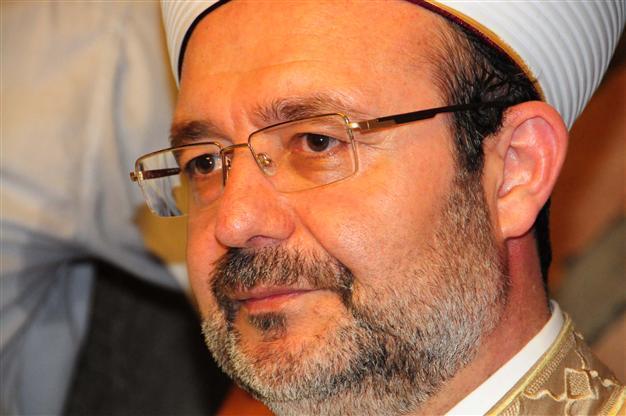Turkey’s religious head embraces Alevis, atheists
ANKARA

Dr. Mehmet Görmez, the head of the Directorate General for Religious Affairs, said in a speech July 23 that Alevis and atheists should be able to express their beliefs or lack of belief. DHA photo
Dr. Mehmet Görmez, the head of the Directorate General for Religious Affairs, said in a speech July 23 that Alevis and atheists should be able to express their beliefs or lack of belief.
“Every human being who lives in Turkey should express the values of their religion freely without any discrimination,” Görmez said during a fast-breaking dinner in Ankara. “Both modern law and our belief system order us to do so.”
Alevi places of worship, “cemevis,” have long been denied official status as houses of worship by the state, but Görmez’s remarks hit a different tone.
“How members of a certain belief group describe themselves, wherever they gather to practice their religion, that’s how it should be evaluated,” Görmez said. “It is as valuable, as venerable as they see it.”
“Let’s leave Sunni citizens to live as Sunnis, Alevi citizens to live as Alevis and our atheist friends, if there are any, to live their lives according to their values. The controversial debates on theology will bring us only conflicts, nothing more. The function of sects throughout history should give believers a route to conduct their worship much better.”
Also, he mentioned nonbelievers, saying there was no compulsion to religion in the Quran.
“The Quran always gives people a choice whether to believe it or not. If someone decides to deny the Quran, it won’t be appropriate for me, as a religious man, to deny his thought; God already gave everyone this option,” Görmez said, adding that denying God doesn’t mean saying offensive things and exercising the freedom of speech harshly.
Görmez also touched upon the Gezi Park events, which have turned into nationwide antigovernment rallies after a police crackdown on a sit-in against a controversial city center renovation plan, referring the immediate medical response in Istanbul’s Dolmabahçe Mosque during the protests when the Turkish police used excessive force on the protesters.
He said if an injured man desperately enters a sanctuary, he is considered a belonging of God, no matter what his fault, religion or color.
“Actually, we divided ‘wrong’ and ‘innocence’ into two. No Muslim could acknowledge what really happened in the mosque that night. I wish I were blind, not to see that.” Görmez told the community, adding that he did not know any other public institution with such a strong connection to civil society.
